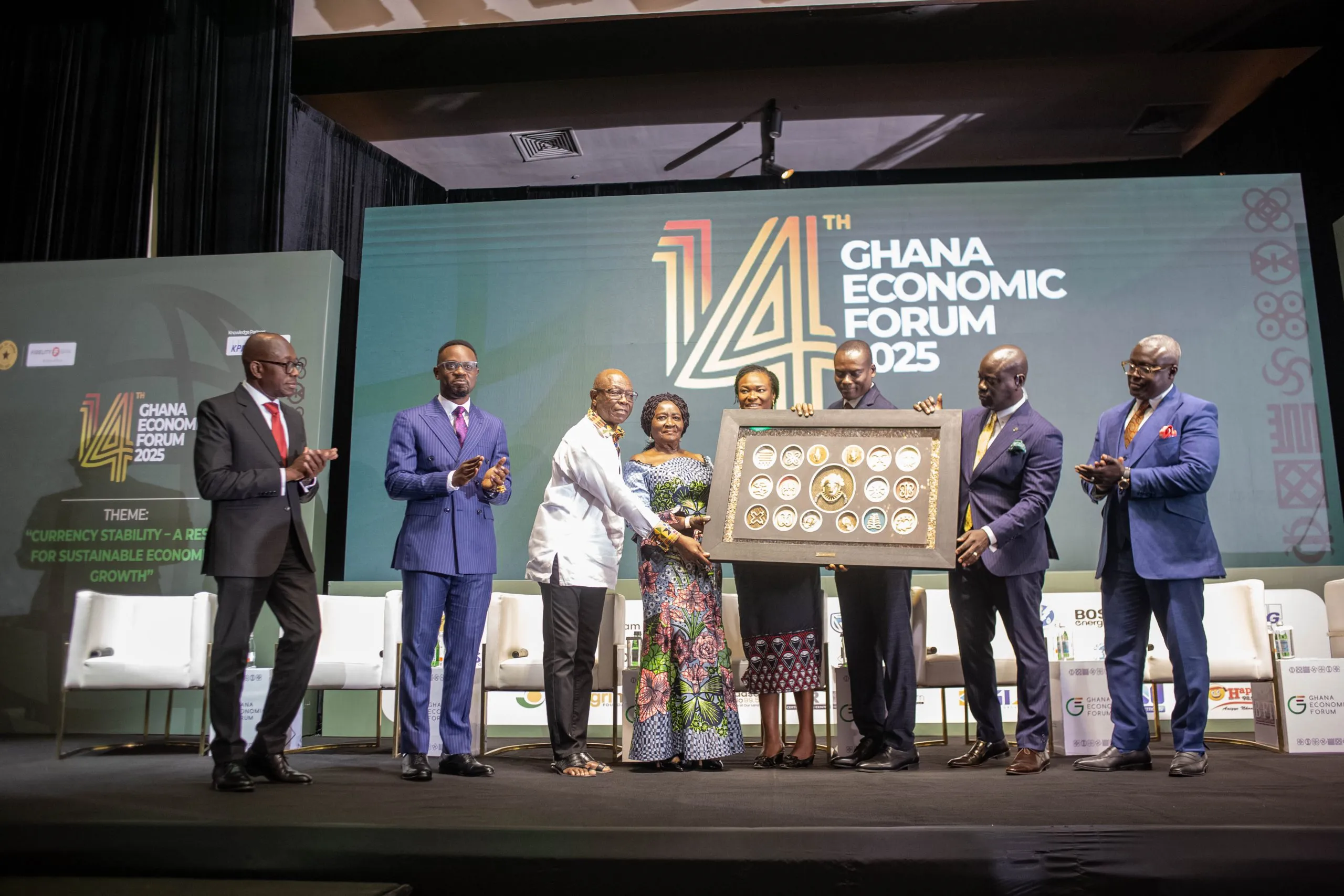Copyright thebftonline

By Ernest Bako WUBONTO & Buertey Francis BORYOR The country’s economic recovery stems from deliberate policy choices rather than miracles, Vice President Prof. Jane Naana Opoku-Agyemang has said – pointing to strengthened gold reserves, eased creditor stress and fiscal reforms now yielding results. Speaking at the 14th Ghana Economic Forum organised by Business and Financial Times under the theme ‘Currency stability: A reset for sustainable economic growth’, Prof. Naana Opoku-Agyemang emphasised that macroeconomic stability directly impacts household wellbeing. “Our economy is restoring confidence through prudent expenditure cuts and strong financial management,” she told the gathering of policymakers and business leaders. Highlighting several positive indicators, she said the cedi has strengthened significantly from being named the world’s worst-performing currency. “Inflation has dropped to 9.4 percent and gold reserves have multiplied. These are not miracles, they are the outcomes of deliberate, disciplined choices,” she added. She credited the Bank of Ghana’s careful policies, stronger export performance and the Gold Board initiative for ensuring the country’s gold directly strengthens national reserves, boosting both domestic and international confidence. She indicated that over-reliance on raw exports and poor fiscal discipline had weakened the cedi in the past – stressing that currency stability now means cheaper credit and greater security for every household, not just abstract economic figures. She called for value-addition to the country’s natural resources, arguing that the cedi will never reach its full strength while the country exports raw materials like cocoa beans and gold dust rather than processed goods. “Every stage of processing that happens in Ghana keeps value here, creates jobs and strengthens our currency,” she emphasised. Addressing the need to empower young entrepreneurs, she described them as the nation’s economic lifeblood and promised enhanced support through training and targetted lending programmes. She defined lasting economic stability as being built on daily disciplines – from honest tax payment to producing more than the country consumes. “True sovereignty is the courage to make difficult choices for prosperity,” she said, while cautioning that international partnerships must always serve the country’s interests. She described 2025 as a critical opportunity to transform the current recovery into enduring economic strength through consistent value-addition across all sectors. Currency stability crucial for consumer confidence, economic growth – KPMG’s Barnieh Speaking at the same event, Kwame Sarpong Barnieh, Partner at KPMG Ghana, underscored the vital role of currency stability in shaping investor behaviour, strengthening consumer confidence and driving sustainable economic growth. Mr. Barnieh observed that the cedi’s volatility in recent years has made clear the crucial link between currency management and national development. He commended government for the cedi’s recent strong performance and urged the Bank of Ghana to continue building reserves – calling on government to maintain strict fiscal discipline. “In today’s interconnected economy, currency stability is essential for economic confidence, investor behaviour and the nation’s social well-being. A stable currency gives businesses the confidence to plan and invest and enables stakeholders to make informed decisions in the short- to medium-term,” he said. Currency and public debt According to Mr. Barnieh, currency stability is equally critical for managing public debt. When the cedi depreciates, he said the cost of servicing foreign-denominated debt rises sharply, putting pressure on the national budget and limiting funds available for social and infrastructural development. He recalled that between 2020 and 2021, the economy enjoyed one of the most stable currencies globally. However, between July and November 2022, the cedi depreciated by 41.9 percent, moving from GH₵7.6 to GH₵13.1 to the US dollar. These were, he said, “difficult times for the country” – with inflation soaring to 54 percent in December 2022. In contrast, by May 2025 the cedi had appreciated by about 40 percent; and by the end of September 2025 it had strengthened further by 21 percent. Inflation also dropped from 23.5 percent in January to 9.4 percent in September, the lowest since 2021. Consumer confidence and business outlook Mr. Barnieh revealed that KPMG’s open public engagement survey shows that most consumers and businesses prioritise a stable economic environment that allows them to forecast costs and invest without fear of currency volatility. “When stakeholders engage with businesses in a particular country, they look out for stability in the functional currency of trade. That is why currency stability remains so crucial,” he stressed. Government’s responsibility Looking ahead, Mr. Barnieh emphasised that the key task for government is to consolidate the cedi’s current stability to ensure medium- to long-term gains. “We must continue to build reserves, especially when the economy is performing well. Our current macroeconomic indicators are pointing in the right direction and this is the best time to strengthen our buffers,” he noted. He further called for fiscal discipline, explaining that ensuring value for money and accountability in public expenditure will reduce waste and free-up resources for development projects. Additionally, he stressed the importance of policy credibility and transparency – saying these principles are vital to sustaining both business and citizen confidence in the economy. Public trust Mr. Barnieh commended the central bank for its public education efforts as the cedi marks its 60th anniversary, noting that such initiatives help Ghanaians better understand and appreciate their currency. “Currency stability is achievable but requires the collective commitment of government, the private sector and trust of the general public. We must transform our mindset and do more business in the local currency,” he added. He also applauded the Ghana Economic Forum, organised by B&FT, for its enduring contribution to national dialogue on economic growth and policy innovation – noting that this 14th edition is particularly significant given its focus on currency stability and the calibre of experts who participated.



